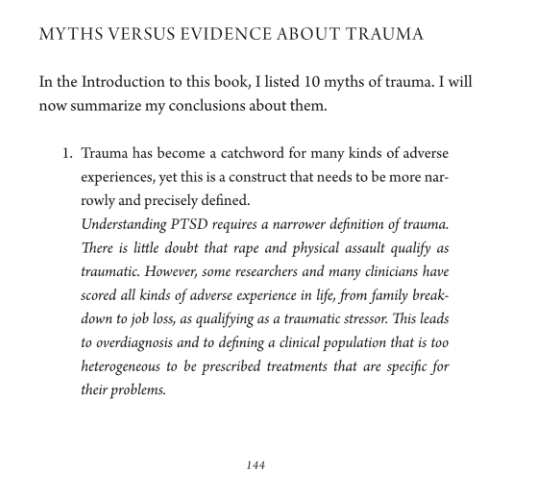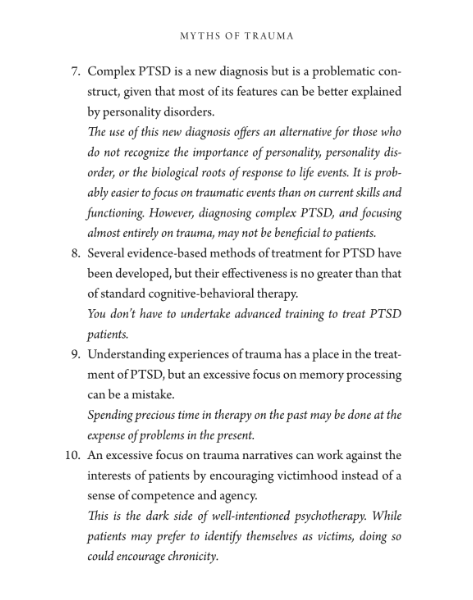We don't know ourselves, we knowledgeable people—we are personally ignorant
about ourselves. And there's good reason for that. We've never tried to find out who
we are. How could it ever happen that one day we'd discover our own selves? With
justice it's been said that "Where your treasure is, there shall your heart be also." Our
treasure lies where the beehives of our knowledge stand. We are always busy with our
knowledge, as if we were born winged creatures—collectors of intellectual honey. In
our hearts we are basically concerned with only one thing, to "bring something
home." As far as the rest of life is concerned, what people call "experience"—which
of us is serious enough for that? Who has enough time? In these matters, I fear, we've
been "missing the point."
Our hearts have not even been engaged—nor, for that matter, have our ears! We've
been much more like someone divinely distracted and self-absorbed into whose ear
the clock has just pealed the twelve strokes of noon with all its force and who all at
once wakes up and asks himself "What exactly did that clock strike?"—so we rub
ourselves behind the ears afterwards and ask, totally surprised and embarrassed "What
have we really just experienced? And more: "Who are we really?" Then, as I've
mentioned, we count—after the fact—all the twelve trembling strokes of the clock of
our experience, our lives, our being—alas! in the process we keep losing the count. So
we remain necessarily strangers to ourselves, we do not understand ourselves, we
have to keep ourselves confused. For us this law holds for all eternity: "Each man is
furthest from himself." Where we ourselves are concerned, we are not "knowledgeable people”.
—F. Nietzsche, On the Genealogy of Morals
The notion of trauma often functions as a blank-slate analog of genes: it's a cause that appears early in childhood and supposedly explains adult behavior and outcomes. It is even "transgenerationally transmitted," just like genes.
The difference is that its role in practice is often "exculpatory": unlike genes, people invoke their real or imagined traumas in order to justify negative aspects of their behavior.
It also evokes pity from the audience. “Trauma” means “victim”. Every trauma is a Story—a story of good guys and villains who have goals, emotions, thoughts, and motives— and genes lack a Story. Simply put, Nurture is a better storyteller than Nature.
Many people with mental disorders think there is some early childhood event that is formative for who they are. Borderlines will remember some early abandonment that supposedly explains their adult fear of abandonment. Narcissists may remember neglect from their parents that seemingly explains their pathological craving for other people's attention, and so on.
But they got things backward: those early-life events were traumatic precisely because there was an already existing susceptibility for experiencing them as “traumatic”. This made the event more salient in their minds and more easily remembered thus leading them to attribute to those events an outsized causal role for later experiences and behaviors.
The myth of a truth buried deep inside
Psychoanalysis made a big deal out of the notion of trauma. Infantile sexual trauma was said to be the source of neuroses in adult age. These traumas would supposedly resurface during the “talking cure” sessions on the psychoanalytic couch, long after they were buried by the ego’s mechanisms of repression.
However, it turned out the therapist’s role wasn’t merely one of (re)discovering long-lost memories—but rather one of constituting them. The very process of analyzing the secrets hidden in the depths of the unconscious was often actually creating the phenomenon it purported to analyze.
"Yet if someone claims to have recalled horrific physical and sexual abuse despite having been oblivious of such trauma for a period of time subsequent to that alleged trauma, there is good reason to be suspicious about the authenticity of their 'memories’", writes psychologist Elizabeth Loftus and colleagues in their new paper on the “memory wars”.
Instead of repressing traumatic memories, it is far more common for victims to struggle to keep them out of their minds. Recovered memories of trauma are more likely to be false memories inadvertently created by therapists’ technique of hypnosis.
Still, these ideas had a certain appeal and spread into popular culture. It is a recurrent motive in movies and novels: from The Twilight Zone to The Shutter Island.
The inner is the outer
In explaining our actions, introspection is biased toward finding reasons that would be plausible to the audience consuming those reasons. This is a startling conclusion when you think about it. It means that introspection is in a sense very public activity after all since its targets are other people, not the private individual.
It also means introspection is not a pursuit of truth but of convenience—it produces convenient stories that would be acceptable to others, not complying with the ancient imperative “Know thyself”.
The autocatalytic curse of (psycho)analysis strikes once again: in the same way the therapist’s role was often constitutive of the phenomenon being analyzed, so we too in our everyday introspections act more as creators than discoverers.
But the fundamental constraint to our imaginative capabilities to produce narratives is other people. The introspective scribbler must take into account the preferences, biases, and capabilities of his reader if he is to sell his story.
It's not just that introspection is unreliable. Introspection is strategically unreliable, designed to select those narratives that portray us in a positive light. In order to be convincing to others, our inner spin doctor’s narratives cannot deviate too much from the facts—excessive deviation is a sign of a mental disorder. And although he can put a spin on anything, not every spin is equally convincing. The “inner” view must be sensitive to the external acceptability of what is "seen" from the inside. Or better yet: external acceptability guides the "internal" search for explanations of one's own behavior. In that sense, the “inner”, “internal” and “private” are much more “outer”, “external” and “public” than they might appear. To think that introspection provides reliable insight into the machinery of the mind is perhaps not so far from thinking that people have some special insight into the biological workings of their bodies.
However, what reasons are plausible or acceptable to others varies. It varies with time and place, and even within the same time and place, it may vary with the type of people that make up the audience.
For the reason-producing mechanisms to work in an adaptive way, they must be designed in a way that anticipates the effects it will have on the audience hearing them. Hence, reasons are practical in nature; they are not building blocks of a scientific theory aiming to represent the world accurately. They are goal-oriented since they are selected according to their ability—and probability—of convincing others.
In search of an alibi
An important aspect of what we call “culture” are words, concepts, descriptions, and explanations that are available to people at a given time in terms of which they can understand, describe, and rationalize their own experiences, actions, and interests. The gender dysphoria epidemic in young people is similar to the multiple personality epidemic from the 1970s.
Once multiple personality disorder, under the influence of therapists, the psychiatric profession, and the media, became a kind of thing that someone could have, individuals started conceptualizing their own and others, sometimes confusing experiences, in terms of “having multiple personalities” much in the same way that people today conceptualize their and others' experiences as “being born in the wrong body”.

The notion of trauma is another powerful tool our culture provides. It gives people meaning but also creates an alibi with the end result of a sense of entitlement.
“There are many who find a good alibi far more attractive than an achievement. For an achievement does not settle anything permanently. We still have to prove our worth anew each day; we have to prove that we are as good today as we were yesterday. But when we have a valid alibi for not achieving anything we are fixed, so to speak, for life”, Eric Hoffer wrote in the The Passionate State of Mind.
Of course, that is not to say that there are no real traumas or victims, but a culture that awards high status to victimhood can expect a higher supply of victims. Even Prince Harry is one. And for just $33.99 you can listen to him unpacking his experiences to a trauma expert.
Psychiatrist Joel Paris sets out to dispel many myths concerning trauma in his recent book Myths of Trauma. Why Adversity Does Not Necessarily Make Us Sick He warns clinicians about the tendency to overdiagnose PTSD and overemphasize traumatic events in patients' life histories.
Here are the 10 myths about trauma he lists:
The Why Game is The Blame Game
It has been said that the Belgrade school shooter, just 13 years old, was the victim of bullying. He stuttered which, along with his excellent grades, made him a victim of bullies. These traumatic experiences supposedly contributed to the horrifying act.
There is a recurrent pattern in these events: school shooters tend to be targets of bullying (often because of some anomaly they possess such as speech impediment or physical defect), are socially awkward and often isolated, feel rejected, tend to feel resentment, and show vindictiveness.

Does that mean that killers are victims after all? One thing is clear—nearly all show signs of mental health problems, such as antisocial personality disorder, narcissism, depressive symptoms, anxiety disorder, autism, etc., so it seems more likely that already existing psychological dispositions made them more likely to violently react toward any real or perceived slights directed against them.
Did playing violent video games make them violent, or did they play video games because of a pre-existing tendency towards violence? Such questions always reappear in the bloody aftermath.
The striking thing about the Belgrade shooter, on the other hand, is his age, which is lower than that of other known perpetrators of similar acts.
Unlike the terrorist who is producing terror to attain a specific goal, here it is not always clear what the goal was or whether there was one at all. Some leave voluminous “manifestos” that supposedly explain the motives of their crime while some take their secret to the grave. What were the motives of the Sandy Hook shooter? Or the Las Vegas shooter? The spectators are left to play The Why Game which is often a cover-up for The Blame Game: like introspection, it does not aim for the truth. Rather, it is biased in favor of finding blame in actors that the blamer in general sees as rivals.
Many argue that there are more slaves in the world today than in the 19th century. Yet because one’s political rivals cannot be delegitimized by being on the wrong side of slavery, few care to be active abolitionists anymore, compared to being, say, speech police.
—John Tooby, “Coalitional Instincts”
And often, there may be no answer to the “Why?”-question. That is to say, there may be no explanation that would satisfy our demand for stories; an explanation that could be formulated in terms of experiences—like traumas— or what we would recognize as reasons or motives. An autopsy of the University of Texas tower shooting (1966) perpetrator, for example, revealed a pecan-sized tumor in the white matter above the perpetrator’s amygdala that may have contributed to his violent impulses.
The links of the chain of reasons come to an end, at the boundary of the game.
—L.Wittgenstein, Philosophical Grammar
The practice of asking for and providing reasons for one’s behavior is a game that makes sense within the community of people that are sufficiently similar in behavior—in cognitions and motivations—so that this common behavior can serve as an anchor and a guide to their understanding of other people, a basis for recognizing something as a reason. Otherwise, our interpretations of other people’s behavior would be more prone to indeterminacy provided by the underdetermination.
Too many alibis?
The question worth asking perhaps may be: what if our culture is providing too many “alibis” and thereby inadvertently incentivizing bad behavior? In the case of the Belgrade shooter, we know that prior to the act, he researched on the Internet whether he would be criminally liable given his age.
An important point here is that rationalizations do not lack causal powers just because they follow actions, and are “post-hoc”. The unavailability of reasons for an act before an act can make the act less likely to appear in the first place.
Since the occurrence of actions depends on the probability of punishment/reward, and plausible reasons for actions (that are given after the actions are committed) affect the probability of reward/punishment, it follows that the availability of plausible reasons prior to the act affects the probability of the act occurring.
The price of sociality, and the benefits it confers, is that we constantly have to justify ourselves to each other, and the availability of plausible justifications should play a role in the agents’ calculus before the act itself.
The wobbly pyramid
But why is our culture saturated with alibis and victims, one may ask? I suspect that the great evolutionary biologist Bill Hamilton was on to something when he wrote:
In a sense a dominance hierarchy has only one satisfied individual—she or he at the top. If the hierarchy is bottom-numerous rather than linear, as is the case with most human hierarchies, it is all the more true that the vast majority of people are dissatisfied, wishing they were higher up, a thought which provides a basic reason why democracies (and especially, within democracies, such institutions as their state school systems) have to be unstable. We see a wobbly pyramid, and particularly within that pyramid we see certain side stairs all human examples have by which demagogues skip up a level or two so as to shout down to the restless base that the whole structure is somehow “wrong”. Under a different system, the demagogue shouts, “You could be higher too”.
Much of our social interactions consist of pandering. That is how politics is played. That is how business is played. That is how you get voters and customers.
Modern politics tends to be organized around the concept of victimhood and oppression. The politics of “intersectionality" could be understood as a coalition-formation strategy, one that finds a common denominator between heterogeneous groups in “oppression”.
“Victimhood” provides “brothers in arms”— it is a solution to the problem of political coordination and mobilization.
One might say that for this political program to work you need a population that is willing to conceive themselves as victims. But the point of conceiving oneself as a victim does not indicate a willingness to stay at the bottom of the social ladder. Quite the contrary, a “victim” seeks retribution, compensation, and emancipation, and “emancipation” is achieved by turning the pyramid upside down. Thus, conceiving oneself as a victim indicates a willingness to subvert the old status hierarchy, and change the traditional status-allocation criteria in a way that favors the changer.
The reason that the inferior elements of a nation can exert a marked influence on its course is that they are wholly without reverence toward the present. They see their lives and the present as spoiled beyond remedy and they are ready to waste and wreck both: hence their recklessness and their will to chaos and anarchy.
—E. Hoffer, The True Believer
In a recent paper, psychologist Michael Bang Peterson explores the psychological state he terms the “Need for Chaos”. He says that the “need to ‘burn it all down’ is activated when status-oriented individuals face strong marginalization, and to gain status, a strategy of generalized, displaced aggression is triggered, a political equivalent of ‘running amok’ in the face of status loss”.
These people are motivated to share hostile political rumors and conspiracy theories to mobilize others against the political system and to unleash chaos. But “unleashing chaos” also seems an appropriate description for many school shooters. It is known that some of them were hoping that their actions would inspire similar crimes in the future and, unfortunately, this is what happened.
How wobbly the pyramid really is remains to be seen.








Things are very different for humans.
The Cat Eating Monster that is chasing me, the mouse that doesn't want to be my meal or the queen that I am trying to woo could not care less about how rough I had it when I was small, and my stopping to navel-gaze about What Does It All Mean? just gets in the way of successful outcomes.
I think there are a lot of false exousiological assumptions in this that you should examine. It's especially weird because these assumptions are analogous to the assumptions about individual psychology that the article is against. You are saying they people are really more genetic machines than verbal living stories, the narratives they produce are made up post hoc etc. Yet instead of society and hierarchy being an equilibrium of genetics, it's a living story made up of words: "our culture," "a culture that awards high status," "conceiving oneself as a victim indicates rather a willingness to subvert the old status hierarchy, and change the traditional status-allocation criteria", etc. You talk as if """status""" (define this please, do you just mean power? if so say power) is a conscious choice, a debate, determined by a word soup called Culture (define this please), as opposed to a necessary genetic equilibrium.